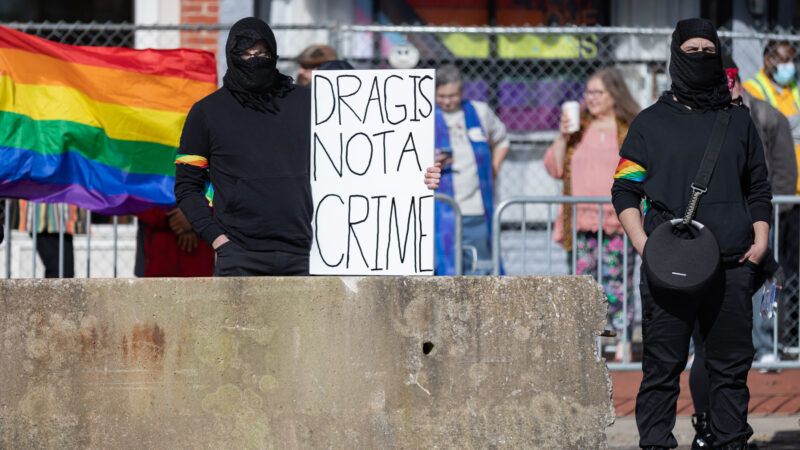Federal Judge Declines To Stop Drag Show Ban at Texas College
The judge ruled that drag performances are not inherently expressive and that schools could regulate "vulgar and lewd" conduct.

A federal judge ruled today that a ban on drag shows at a Texas public university can remain in effect while a lawsuit challenging it proceeds, writing that drag performances are not categorically protected under the First Amendment.
U.S. District Judge for the Northern District of Texas Matthew Kacsmaryk, an appointee of former President Donald Trump, denied a motion for a preliminary injunction against West Texas A&M University from banning future drag shows on campus. Kacsmaryk also granted the university president, Walter Wendler, qualified immunity from the lawsuit, filed by the Foundation for Individual Rights and Expression (FIRE).
"Because men dressed in attire stereotypically associated with women is not 'overtly political' in a category of performative conduct that runs the gamut of transvestism… it is not clearly established that all drag shows are inherently expressive," Kacsmaryk wrote.
And even if the performance in question did implicate the First Amendment, Kacsmaryk continued, the university was not forbidden from regulating obscene conduct.
"The First Amendment does not prevent school officials from restricting 'vulgar and lewd' conduct that would 'undermine the school's basic education mission'—particularly in settings where children are physically present," Kacsmaryk wrote, citing conservative sources such as the Manhattan Institute's Chris Rufo and Gays Against Groomers.
The legal battle began earlier this year, when a student group at West Texas A&M University, Spectrum WT, tried to schedule a charity drag show on campus in late March to raise money for LGBTQ+ suicide prevention.
However, Wendler canceled the event. In a blog post, he made it clear that he was personally offended by drag shows, claimed they degrade women, and compared them to blackface minstrel shows. Wendler also alluded to the fact that he was likely on the wrong side of the Constitution.
"A harmless drag show? Not possible," Wender wrote. "I will not appear to condone the diminishment of any group at the expense of impertinent gestures toward another group for any reason, even when the law of the land appears to require it."
FIRE filed a lawsuit in March on behalf of Spectrum WT against Wendler and several other Texas A&M University officials, arguing that drag performances are inherently expressive acts protected by the First Amendment. The suit called Wendler's edict banning drag shows "textbook viewpoint discrimination" that chills student speech.
Kacsmaryk's ruling only applies to early-stage motions in the lawsuit, which will continue. FIRE said in a statement today that it plans to appeal.
"FIRE strongly disagrees with the court's approach to First Amendment analysis and its conclusions," FIRE senior attorney JT Morris said in a press release. "We will appeal, and our fight for the expressive rights of these brave college students will continue."


Show Comments (70)